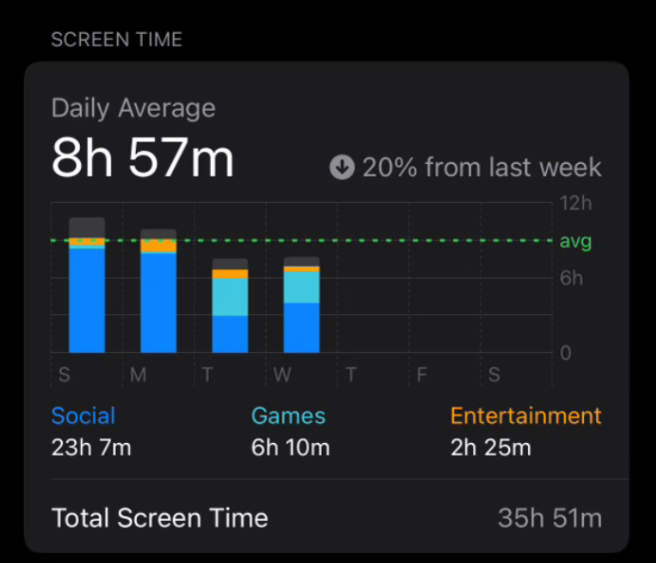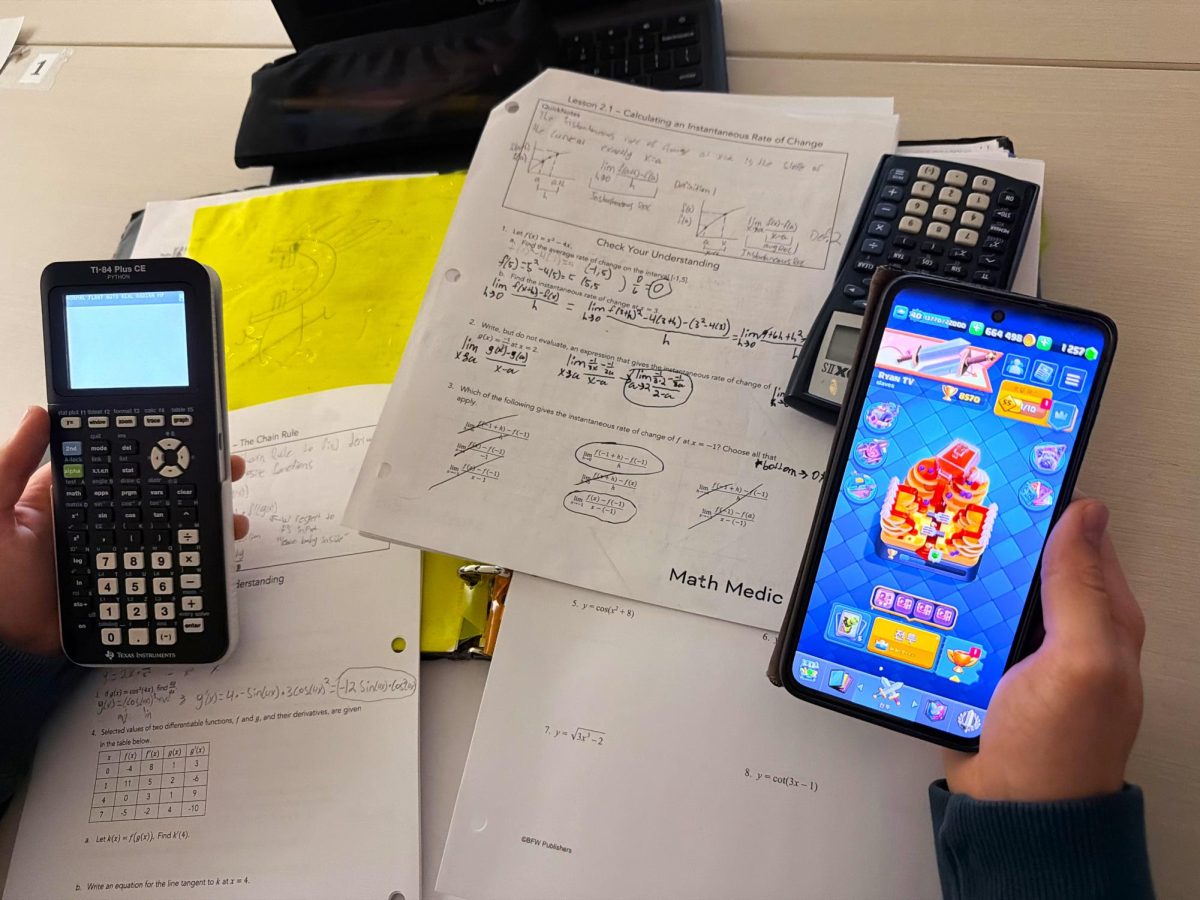While phones can be powerful tools for learning, they also bring new distractions that make focusing on homework and balancing academic, personal, and social lives harder for students.
Take, for example, Khamla Douangpangna, a student enrolled in both Advanced Placement (AP) and International Baccalaureate (IB) courses. He believes that students have a much larger workload than they can handle. “It can be hard to manage while dealing with mental health and sports,” he said. Khamla’s screen time shows that he spends an average of 9 hours on his phone daily. Khamla’s screen time and personal experience shows that the problem may lie in the frequency and intensity of homework, and that the importance of homework is much less than his extracurricular activities.
In contrast, Ben Voss, who is also in AP and IB classes, finds the load manageable. He spends roughly 7 hours a day on his phone. The disparity in time spent on phones highlights a significant issue: how much time can students spend focused on schoolwork instead of on their phone?
Kyle Conlon sums up the problem concisely: “School should be where we learn, and homework should just be reinforcing those ideas we learn.” He believes that the purpose of homework is being lost, as the focus has shifted from reinforcing knowledge to becoming the only way to learn a topic.
Luke Laird, a WO student balancing academics with a demanding sports schedule, describes how homework has disrupted his life. “All of the homework that I get mentally and physically exhausts me,” he explains. “Me, in particular, I have soccer practice in Grand Rapids three times a week. Getting home at around 8 pm to find myself with homework to do can be really annoying and tough on me.”
Laird’s struggle is a reminder that students have lives beyond their schoolwork, and that phones are not the only factor which can decrease time for homework. For many, extracurricular activities like sports, music, or part-time jobs are an essential part of their development. The constant cycle of homework, practice, and late nights can lead to exhaustion and burnout, not to mention the stress that builds when students are unable to complete assignments due to time constraints.
“I’ve stayed up past midnight finishing homework, only to wake up early the next day to repeat the process,” Laird continues. For students like him, an exhausting routine can have lasting effects on their physical health, mental well-being, and overall academic performance. Laird says that while he works he keeps his phone in a separate room.
Phones are designed to make our lives easier, but for many students, they do the opposite. With constant notifications, social media, messaging apps, and entertainment options at their fingertips, it’s easy to get distracted during homework sessions. The time students spend on their phones often cuts into the time they could be spending on academic tasks, making homework feel more time-consuming and less productive.
When we look at the screen time reported by these students, their phone usage can visibly interfere with their ability to manage homework efficiently. Khamla, with nearly 9 hours on his phone each day, might have difficulties focusing on his assignments if distractions constantly pull his attention away.
There’s a growing conversation about how to strike a better balance between screen time, homework, and student well-being. The key lies in creating more mindful and structured approaches to both technology and academic work.
- Reduce Screen Time During Study Hours: Students could benefit from designated “phone-free” study times, where they focus solely on their assignments without the constant pull of social media or texting. Students can set app-limits within their screen time settings, which lets them limit how much time they can spend on a certain app category. There is also an option for downtime in settings, which can be scheduled to block out certain times.
- Quality Over Quantity in Homework: Instead of loading students down with hours of assignments, teachers could aim for homework that is meaningful and focused on reinforcing key concepts. Such an approach would allow students to spend less time completing busy work and more time understanding what they’ve learned.
- Encourage Physical and Mental Breaks: Taking breaks from both screens and textbooks is crucial for students’ mental health. Schools could encourage activities like physical exercise, reading, or spending time with friends to help students decompress after long study sessions.
- Open Dialogue with Teachers and Parents: The conversation around homework and screen time should involve students, parents, and educators. When students voice their struggles, teachers and parents can collaborate to create healthier, more balanced routines that prioritize both academic success and well-being.
Students today are navigating a challenging landscape where homework, screen time, and mental health intersect. While phones are essential tools for communication and learning, they also contribute to distractions that can hinder productivity and well-being. By rethinking how homework is assigned, encouraging mindful phone usage, and focusing on quality over quantity in both schoolwork and screen time, we can help students manage their time more effectively and reduce the stress that often accompanies their academic lives.








Megan • Dec 3, 2024 at 12:20 pm
This is an amazing article you helped me with my screen addition and how to manage it with my schoolwork
Zakyah • Dec 3, 2024 at 12:19 pm
This was very well written and Informative, great job!